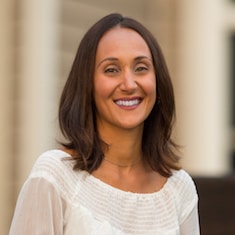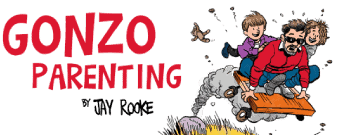“I’m freaked out and scared and worried and having trouble navigating this, whether it’s work or relationship, and [the kids] are too! But I have to tell them it’s okay.” -Jake Hajer, Gonzo Parent
Here are some tips to help you avoid pandemic parenting altogether, or at least to recover faster if you find yourself already suffering from its effects.
Read on to learn more about the unique challenges of parenting during the pandemic, as well as some ways to cope when it feels like there’s no end in sight to this trying period in human history.
In today’s day and age, it’s easier than ever to feel like you are the only one who feels stressed out or is having trouble coping with your responsibilities as a parent. It’s difficult to get outside of your own headspace and see that parenting during times of crisis isn’t easy for anyone – but there are ways to cope with this pain and anxiety without neglecting your children.
A new pandemic has infected Earth, and it seems as if every parent has caught it. It’s called the pain of pandemic parenting, and the symptoms are almost entirely mental. Who would have thought something like this could happen? Life is full of surprises, and this is one of those shocking surprises. In reality, pandemic parenting can be one of the most unique experiences in history, and you are a part of it! This week, Gonzo Parenting launches its kick off episode and what’s a better way to start than to talk about how this pandemic has been constantly straining family dynamics. The first part of our show starts with our Gonzo parents, Jake Hajer, Carmen Buffington, and Brian Farnham talking about their own pandemic experiences and tales of kids acting out in the weirdest ways. They also relate how they took the opportunity to grow closer as a family, how they were challenged by social deprivation, dealing with parental guilt, things they wish they knew before becoming parents, and their advice to fellow parents who are trying hard to show up as their best self during this tough time. “You don’t know exactly how the kids are dealing with it. They’re very resilient on the one hand… But ultimately, there’s some process going on that you’re not privy to and that they’re not privy to.” -Brian Farnham, Gonzo Parent The second part of our show with Dr. Amanda Zelechoski, co-founder of Pandemic Parenting, expounds on the clinical side of parenting, mental health issues, decision fatigue, stress management for kids, and the science of providing individualized support to each child. Amanda discusses how we can model how to process emotions to our children, how to leverage our kids’ ability to remember things in totality to give them an entirely different experience, how involving them in the decision-making process empowers them, and the importance of self-care in our role as parents. Parents may feel helpless, but gonzo parenting is all about the trial by fire learning experience of how to become the parents we wish had. And when we’ve come out on the other side of this roller-coaster ride, maybe we can look back with a little perspective. But until then, let’s hear from our guests…. Join the Gonzo Parenting Community Finding Comedy in the Chaos “There’s no playbook [in being a parent]… You have to wait and see.” -Carmen Buffington, Gonzo ParentEpisode Highlights:
With Our Gonzo Parents- 07:34 Meet Jake, Brian, and Carmen and Their Pandemic Stories
- 16:06 Spending Family Time
- 26:04 Social Needs Deprivation
- 37:15 Gonzo Parenting Craziness!
- 43:32 Things You Wish You Knew Before Being a Parent
- 50:31 Pandemic Parenting and Decision Fatigue
- 01:01:14 Modeling How to Process Emotions
- 01:11:23 Older Kids vs Younger Kids and How to Support Them
- 01:19:22 How to Bounce Forward
- 01:25:45 Give Yourself Grace as a Parents
“Kids are often okay when their parents are okay.” -Dr. Amanda ZelechoskiResources: [bctt tweet=”PANDEMIC PARENTING: The art of parenting during a crisis. Parenting during a pandemic. What a unique experience, right? Learn how you can overcome the challenges of pandemic parenting with @JayRooke and our Gonzo Parents with our expert guest, Dr. Amanda Zelechoski co-founder of @PandemicParent. Click https://gonzoparenting.com/ for resources and shownotes. #JayRooke #Podcast #GonzoParenting #ModernParenting #Parentpreneurs #pandemicparents #familytime #familyrelationship #socialdeprivation #pandemicfatigue #anxiety #mntalhealth” username=””] Meet Our Guest:
 Dr. Amanda Zelechoski is a licensed clinical and forensic psychologist and attorney, specializing in trauma. She is a Professor of Psychology and the Director of Clinical Training at Purdue University Northwest, where she conducts research on the impact of childhood trauma at the intersection of psychology, law, and public policy. She is board certified in Clinical Child and Adolescent Psychology, has worked clinically with adults, children, and families, and provides training and consultation to numerous mental health, legal, educational, and child welfare agencies. Most importantly, she is a wife and mom of three young children, just trying to make sure her kids have clothes on when they bust into her virtual meetings.
Connect with Pandemic Parenting:
Inspirational Quotes:
Dr. Amanda Zelechoski is a licensed clinical and forensic psychologist and attorney, specializing in trauma. She is a Professor of Psychology and the Director of Clinical Training at Purdue University Northwest, where she conducts research on the impact of childhood trauma at the intersection of psychology, law, and public policy. She is board certified in Clinical Child and Adolescent Psychology, has worked clinically with adults, children, and families, and provides training and consultation to numerous mental health, legal, educational, and child welfare agencies. Most importantly, she is a wife and mom of three young children, just trying to make sure her kids have clothes on when they bust into her virtual meetings.
Connect with Pandemic Parenting:
Inspirational Quotes:
- 09:21 “Each person, being locked away and separated from other families and socialization, internalizes it and reflects it differently.” -Jake Hajer, Gonzo Parent
- 10:44 “I’m freaked out and scared and worried and having trouble navigating this, whether it’s work or relationship, and [the kids] are too! But I have to tell them it’s okay.” -Jake Hajer, Gonzo Parent
- 11:18 “You don’t know exactly how the kids are dealing with it. They’re very resilient on the one hand… But ultimately, there’s some process going on that you’re not privy to and that they’re not privy to.” -Brian Farnham, Gonzo Parent
- 18:19 “There’s this great awakening for those of us where it’s now changing how we have our dynamic with our kids in a more conscientious, deliberate, thoughtful way.” -Jay Rooke
- 42:35 “The pain of how we navigate things so much has to do with our compass and which direction it’s pointed.” -Jake Hajer, Gonzo Parent
- 43:48 “We tend to think that no matter how many kids, that you’re going to be able to continue to do the things that you’d wanted to invest in for yourself. And the truth is, there’s a trade off. You can’t do both.” -Brian Farnham, Gonzo Parent
- 45:16 “There’s no playbook [in being a parent]… You have to wait and see.” -Carmen Buffington, Gonzo Parent
- 46:46 “The personal time you get [as a parent] is almost nonexistent.” -Jake Hajer, Gonzo Parent
- 48:18 “Find parents who have kids that you agree with their parenting style and drink together because that’s going to save you. It takes a community to raise a kid.” -Jake Hajer, Gonzo Parent
- 50:53 “We don’t often know crises are coming before they do. We’re mostly only able to study the aftermath of really difficult situations.” -Dr. Amanda Zelechoski
- 54:18 “There’s a need. People are struggling, they need to feel like they’re not alone.” -Dr. Amanda Zelechoski
- 01:04:21 “The goal is not to eliminate all stress from your kids…. But we want to have situations where it isn’t the sort of chronic and toxic stress like ongoing abuse in the home or emotional neglect.” -Dr. Amanda Zelechoski
- 01:09:30 “Think about the totality instead of those micro moments.” -Dr. Amanda Zelechoski
- 01:17:04 “Compassion and empathy come to mind really big for me. And I think for parents, it’s really important for us to not only extend those to those around us, but to let that come back to ourselves as well.” -Jay Rooke
- 01:17:55 “It’s alright if you screwed up. You can come back and have a do over.” -Dr. Amanda Zelechoski
- 01:21:43 “Life is about choices. We get to be intentional about our time instead of letting schedules happen to us.” -Dr. Amanda Zelechoski
- 01:22:35 “A way to empower your kids is to involve them in those decisions.” -Dr. Amanda Zelechoski
- 01:26:03 “Kids are often okay when their parents are okay.” -Dr. Amanda Zelechoski
- 01:27:25 “Self love is the biggest gift that we can give our kids. We need to rewire and reframe that conversation.” -Jay Rooke
